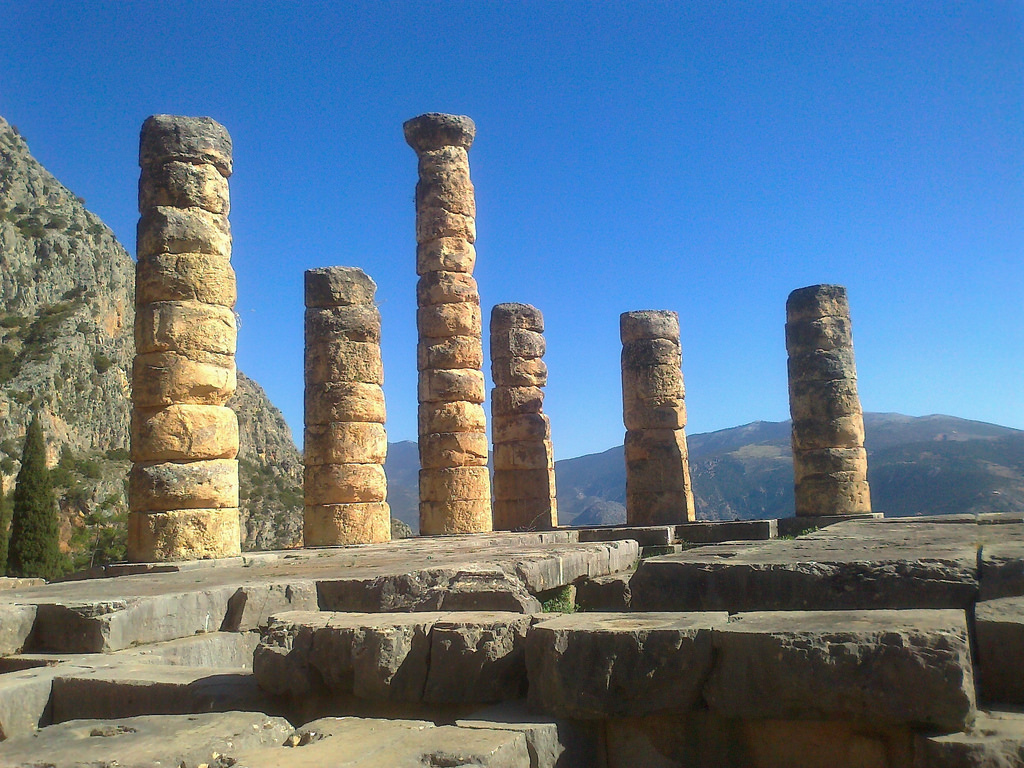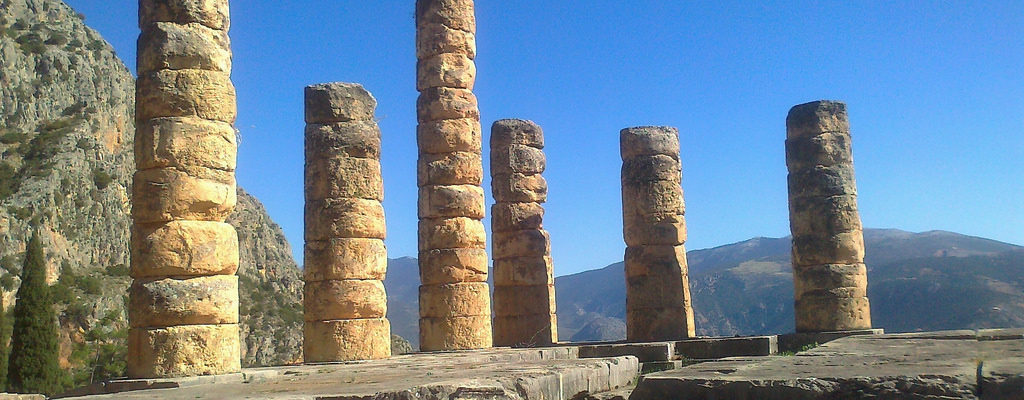The sanctuary of Delphi was undoubtedly the best-known divinatory centre of the entire ancient world. Divination is the art of predicting the future by interpreting divine signs and is a cultural phenomenon present in almost all societies, in both the ancient and modern worlds.
It originated in ancient Mesopotamia, where the interpretation of the stars (astrology) was also particularly well developed, and was an integral part of religion in all ancient societies.
The Greek historian Plutarch, who was a priest at the sanctuary, is our main source regarding the rites performed at the sanctuary of Apollo.
Before prophesying, the Pythia had to purify herself in the Castalian spring, and then sought inspiration by closing herself in the adytum of the temple and chewing laurel leaves, seated on the sacred tripod near the omphalos and the Chasma (“cleft in the Earth”).

© Photo credits by Paul Stephenson under CC-BY-2.0
The cloying gas vapours emitted from the chasm, combined with the chewing of hallucinogenic herbs, caused a state of mental alteration (possibly hallucinations, or perhaps a trance) in which the Pythia gave her prophesies, sometimes dying during the act.
Recent studies have revealed the presence of ethylene gas in a spring near the temple.
Large quantities of this gas can be lethal, but small doses may cause euphoria, a sensation of lightness and visions.
There were two types of oracles: religious prescriptions (usually instructions regarding sacrifices, the furnishing of temples and the foundation of new religious sites) and political indications (interpretations of the laws, instructions for the foundation of cities).

Do you want to know more about Delphi and the history of Greece?
Check out our guidebook to Ancient Greece, with detailed history and Past & Present images of the Acropolis, the Parthenon, Delphi and all the greatest historical and archaeological sites of Ancient Greece.

